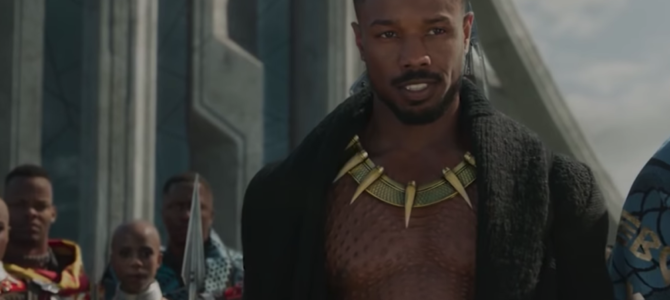
After five weeks of being on top, Marvel’s latest blockbuster “Black Panther” has finally dropped to number two at the box office. Despite its reign finally coming to an end, it’s worth noting that no movie has been atop the box office for that long since “Avatar” in 2009. Considering “Black Panther’s” popularity, it may be worth asking: What’s so special about this movie that Americans just can’t seem to get enough of?
The two answers I’ve come across the most so far have been the following: Some cite the critical acclaim it’s received. They argue this superhero film is just better made than most. Others say it’s because of the almost all-black cast and the compelling social justice themes it espouses. When I went to see the movie for myself, I realized there might be another reason.
I, a conservative, went to see “Black Panther” while I was visiting my, much more liberal sister in Seattle. Honestly, I was reluctant to pay to see a movie made by some folks in Mars — sorry, Hollywood, called “Black Panther,” a name associated with the often-violent Black Power movement.
As it turned out, I was pleasantly surprised. I loved the movie and so did my sister. For the first time in over a year, my sister and I had found something political we both believed in. What it was that we agreed on wasn’t immediately clear because the issues discussed in “Black Panther” don’t take place in 2018 red America and blue America, but perhaps that’s how the film pulls off its magic.
At a time when our country feels more divided than any living American can recall, “Black Panther’s” success shines light on the values many American across the country still agree upon. These common understandings aren’t just about America. More importantly, they’re not about what it means to be black or white.
“Black Panther” focuses on the centuries-old question of what it means to be a human being. The most memorable example comes through the antagonist, Erik Killmonger, a former Navy Seal the audience is meant to sympathize with because of the injustices he faced growing up in the slums of Oakland.
On the verge of death, the protagonist and rightful king of Wakanda, T’Challa looks into Killmonger’s eyes, knowing full well that his own father’s abandonment of Killmonger as a child led to his later radicalization. He says to Killmonger, “We can still heal you.”
“Why, so you can lock me up?” Killmonger responds. “Nah. Just bury me in the ocean with my ancestors who jumped from ships, ’cause they knew death was better than bondage.”
This powerful rhetoric seemed surprisingly poignant for a Marvel movie. It’s not original, but it does speak truth.
In 1863, two years into the Civil War, Frederick Douglass, a former slave and prominent abolitionist, stood before an audience full of black Americans and proclaimed: “Better to die free, than live slaves!”
Douglass didn’t come up with the expression either. In 1775, a year before the American Revolution, the Second Continental Congress described their own thirst for liberty, writing that they were “resolved to die freemen rather than live as slaves.”
The idea that freedom is worth dying for because it is a necessary condition for human happiness has been at the core of America since the founding. Hundreds of thousands of Americans, of all races, have died both on American soil and abroad with that same conviction.
While Killmonger’s words about wanting to die free may be interpreted as a line meant to invoke guilt, they shouldn’t. The beauty of his character rests in the fact that even though he was led astray, you can still understand his intentions, you can still relate to him as a human being.
In this sense, Killmonger explains the same truth that is espoused in the American Declaration of Independence: white or black, superhero or villain, friend or enemy, we’re all created equal in our humanness.
“Black Panther” engages a lot of important questions modern Americans don’t consider enough. It helps us better understand our history by rationalizing the divine right of Kings. It discusses when a people have a right to overthrow their government. It makes the distinction between dangerous full-scale revolution, and gradual change.
“The world’s going to start over,” Killmonger says when he steals the throne. “I’mma burn it all.”
It engages the question of how we should react when we encounter hardship. If we are suddenly given power over our oppressors, how do we respond? With hatred and violence? Or do we first try to make amends and do the hardest thing, forgive?
At the end of the film, T’Challa gives a press conference where he tells global leaders: “Wakanda will no longer watch from the shadows. We cannot. We must not. We will work to be an example of how we, as brothers and sisters on this earth, should treat each other.”
While some may think “Black Panther” conveys a divisive message about the empowerment of just the black race, this line certainly suggests otherwise. Aside from the film’s unifying message and powerful themes, Americans should see “Black Panther’s” unusual popularity as a reminder of all that we still can agree.
Clarification: This article has been edited to clarify the association between Black Panther the comic and the Black Power movement.









